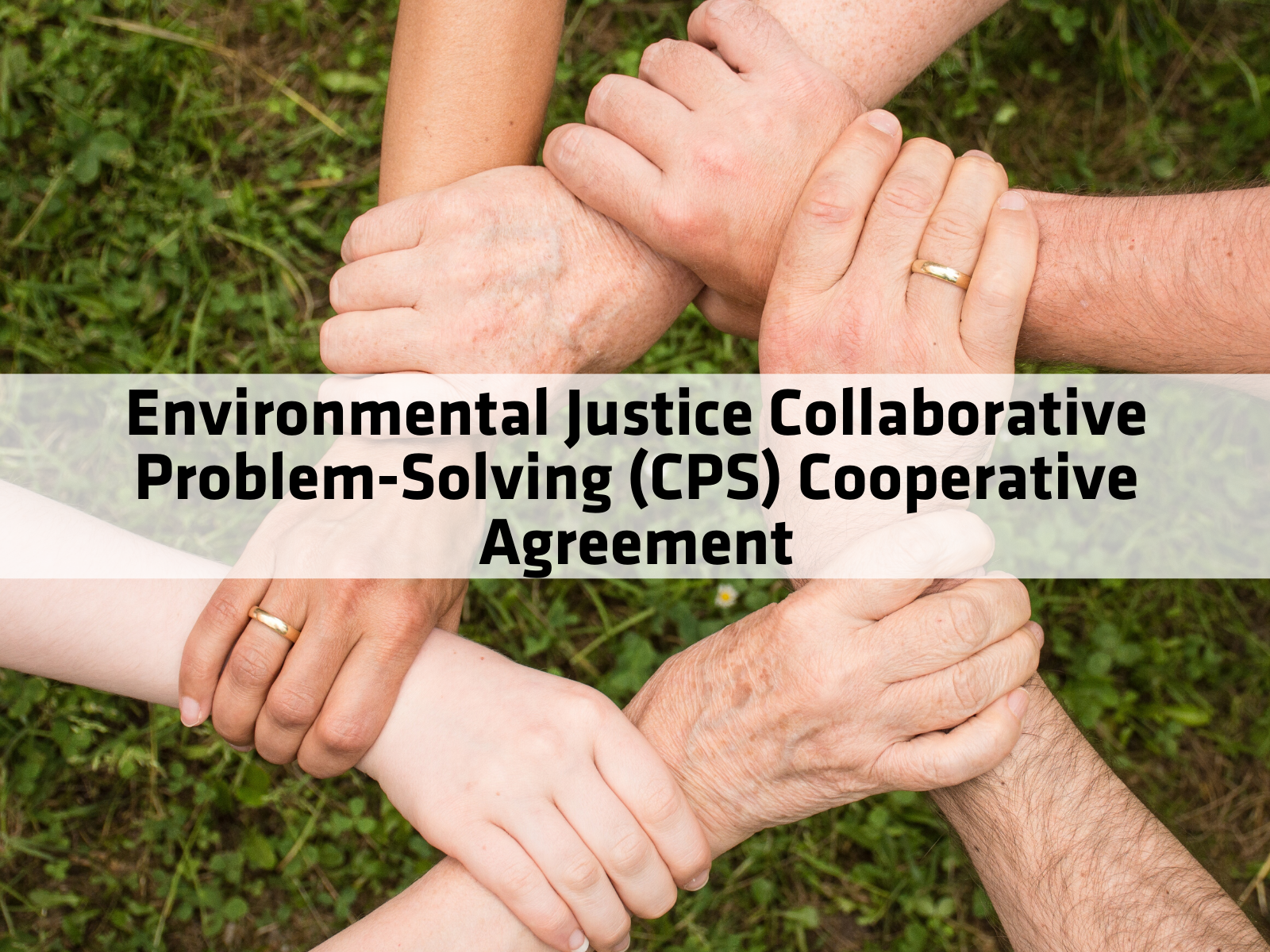About
The Environmental Justice Collaborative Problem-Solving (CPS) Cooperative Agreement Program provides funding for eligible applicants for projects that address local environmental and public health issues within an affected community.
CPS program helps recipients build collaborative partnerships to understand and address environmental and public health concerns in their communities.
CPS Program provides financial assistance to eligible organizations working on or planning projects to address local environmental and/or public health issues in their communities, using EPA's "EJ Collaborative Problem-Solving Model." The CPS Program assists recipients in building collaborative partnerships to help them understand and address environmental and public health concerns in their communities.
Environmental justice is defined as the fair treatment and meaningful involvement of all people regardless of race, color, national origin or income with respect to the development, implementation and enforcement of environmental laws, regulations and policies. Environmental justice will be achieved when everyone enjoys the same degree of protection from environmental and health hazards and equal access to the decision-making process to have a healthy environment in which to live, learn and work.
Project Examples
EPA has funded over $6 million in EJ grants from 2014-2018. Go to the interactive story map to view a few recent project successes.
Mary Queen of Viet Nam Community Development Corporation (MQVN) and its partner organizations, empowered community members of Village de l’Est, a low-income, minority neighborhood in New Orleans East, to take meaningful action to address the pervasive issue of local water pollution.
PUSH partnered with the U.S. Fish and Wildlife Service, Buffalo Museum of Science, and Western New York Partnership for Regional Invasive Species Management (a local coalition) to address the demand for job training in environmental restoration and green infrastructure by developing a peer-education program for youth in the city of Buffalo. This project trained local young adult residents to create green infrastructure installations along the Buffalo River.
More Info/Resources
EJ CPS Webpage CPS Factsheet EPA’s Environmental Justice Collaborative Problem Solving ModelContact Info
Environmental Justice Hotline
1-800-962-6215
ejhotline@epa.gov
EPA Region 7 Environmental Justice Contact
Althea Moses
913-551-7649
Moses.althea@epa.gov


